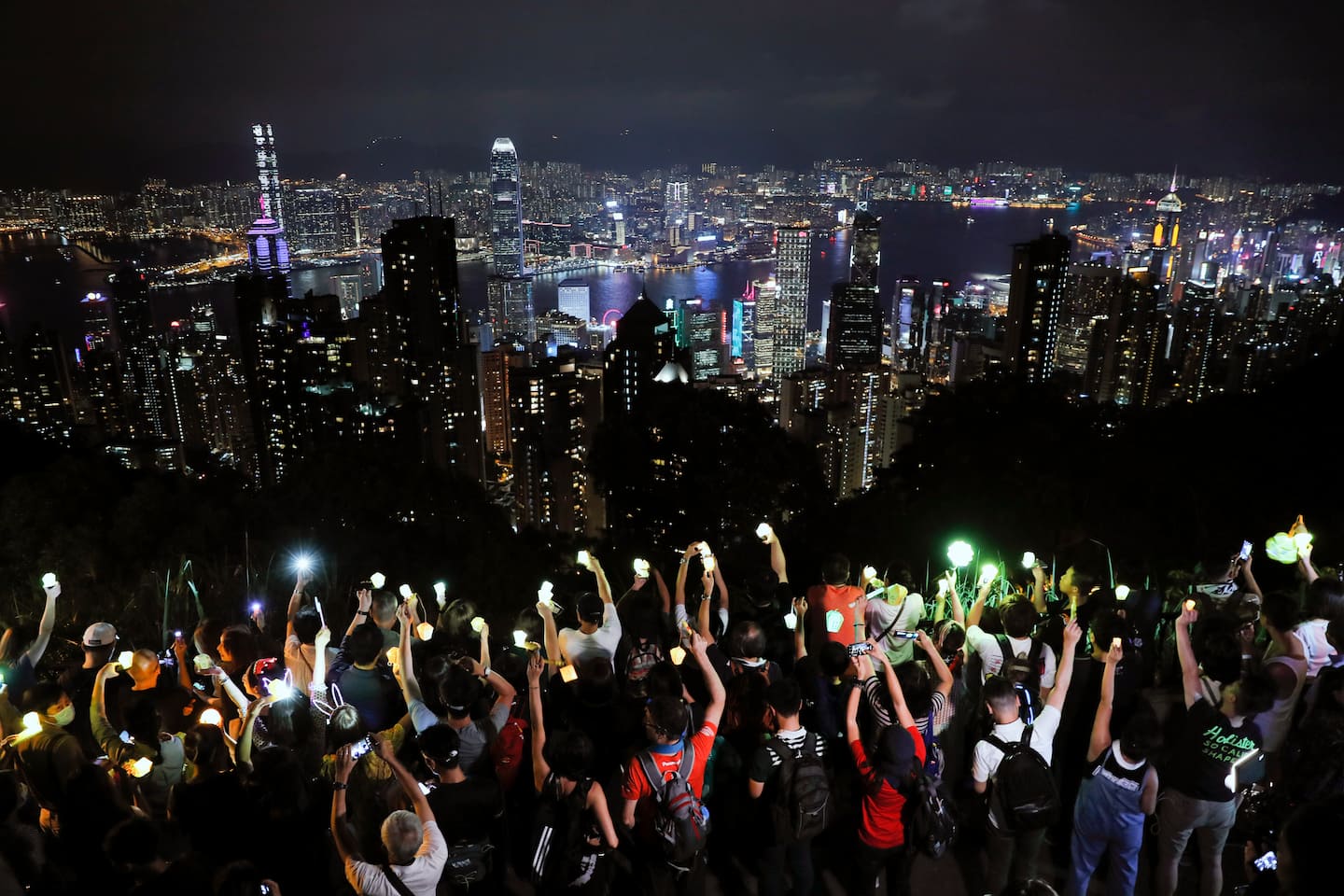By the end of their operation, police had collected more than 200 devices from Zhao and 52 others held for alleged political crimes that day, according to the detainees, as well as laptops from spouses who were not politically active and had not been arrested.
The digital survey showed how Hong Kong authorities are exercising new powers under the National Security Act, which was introduced last summer, on a much larger scale than City leader promised. Since the January 6 raids, authorities have blocked at least one website, according to the site’s owner and local media reports, raising concerns that Hong Kong is moving toward broader digital censorship and censorship similar to those in mainland China.
“It’s a replay of the Great Firewall,” said Lokman Tsui, an assistant professor at the Chinese University of Hong Kong who specializes in privacy and internet communications. “They are testing the waters at the moment, so the results are not equivalent – but the question is when and how, not if.”
Hong Kong police have begun sending the seized devices from the arrested people to mainland China, where the authorities have advanced data extraction technology, and the information obtained from those devices is used to help the investigations, according to two people familiar with the arrangement who spoke about the condition of non-disclosure. For his identity to protect their safety.
Glacier Kwong, founder of Keyboard Frontline, which tracks digital rights in Hong Kong, said the government clearly intends to crack down on one of the last free spaces of opposition.
“The government has already set a precedent,” said Kwong. “As long as it does not favor the system, any website can be blocked without any reason under the National Security Law, which represents a clear blow to Internet freedom, freedom of information and freedom of expression.”
In emailed comments to the Washington Post, a Hong Kong police spokesman said the force would not comment on specific cases, but indicated that the National Security Act allows police to unilaterally disable access to online content. He added that the police did not reveal the details of the investigation.
Sweep the data
Dozens of people arrested last Wednesday were from the pro-democracy spectrum, including civil society activists – labor unionists, advocates of minority rights and the disabled – and former lawmakers. Two others have already been arrested, former student protest leader Joshua Wong and broadcaster Tam Tak Chee.
Their alleged crime was to participate in a preliminary vote to select the candidates who would later run in the legislative elections that the pro-democracy camp had a great chance of winning. (Only half of Hong Kong’s legislature is directly elected, a feature designed to preserve the power of the pro-Beijing establishment.) Election orderCiting the epidemic.
All of them are already detained, except for the two and the former Democratic Party chief Wu Chi-wai On bail, no charges have been filed under the Security Law. If charged and found guilty, they could face life in prison.
Police have been confiscating the devices of protesters arrested at anti-government rallies since late 2019, but targeted arrest under the National Security Act has hit nearly every prominent opposition figure.
Soon after the arrests and confiscation of devices, colleagues and aides of the detainees began to notice strange activity on their social media accounts and e-mails. Tam, who is already in prison, appears to have joined the encrypted messaging app Telegram, popular with Hong Kong protesters, and was communicating with people through it. Said his Facebook page manager Tam He has not reactivated his Telegram accountHe urged people to ignore the messages.
Ray Chan, a former pro-democracy lawmaker who was arrested at his home, said he remained Receive confirmation codes Telegram sent to a replacement phone after his devices were confiscated by the police. The codes are used to validate the user who is trying to log into an account.
Separately, Lam Chuck Ting and Helena Wong, two former Democratic lawmakers, said their employees had received notifications from Google that state-sponsored hackers were trying to compromise their work accounts, which are hosted on a Gmail server. Google alerts arrived right after their arrest, once their devices were in police hands.
“They are spreading the network and using all means to collect information,” Lam said in an interview. “If there is any information that they find they can use to charge us, they will keep looking.”
A Hong Kong police officer, speaking on the condition of anonymity to discuss sensitive details, said the force’s cybersecurity and technology bureau was unable to crack the newer Apple iPhone models domestically, but found ways to compromise Android systems and information on Google Drive once it seized a person’s devices.
A Google spokeswoman said she could not comment on specific incidents. Notifications of government-backed hacking attempt are sent even if Google has already successfully blocked the attempt.
One person familiar with police practices who spoke to The Post said the force remains convinced that the pro-democracy protests that swept Hong Kong in 2019 were highly planned and coordinated, even though they were. Largely without a leader. This person said the police believe they need to fully map the pro-democracy and civil society ties in the city to get a clearer picture.
“The government wants to map the opposition network with the devices it has seized, like who is in contact with whom, to crack down completely,” said Kwong, a digital rights activist who lives in exile in Germany.
Access is restricted
After the arrests, Hong Kong users reported an access problem HK Chronicles, A website established during the 2019 anti-government movement. The site is famous for posting personal details of Hong Kong police officers and pro-Beijing figures; It also identifies companies in Hong Kong that support the Chinese government, so that protesters can boycott them.
In a post on HKChronicles Telegram last week, Naomi Chan, the site’s owner and editor-in-chief, said she had noticed that visitors to the site had “dropped dramatically”. Users trying to access the site from different internet service providers in Hong Kong received error messages.
Chan said on Telegram that HKChronicles has since changed IP addresses. The site is still inaccessible locally except via a VPN.
Four of the major Internet service providers in Hong Kong did not respond to requests for comment or declined to comment. Chan, an 18-year-old high school student, did not respond to messages sent via Telegram.
Corporations and tech companies have been preparing for the implications of the National Security Act, and they are Sensitive to any movements Undermining Hong Kong’s internet freedom – a characteristic that distinguished the city from the Chinese mainland. Google, Facebook and other US social media companies have been banned in China, but they operate freely in Hong Kong.
So far, experts say, tech attempts to block online content are clumsy and less complicated than the methods used in mainland China. They expect a lighter touch from the Great Chinese Firewall so that they do not stray from the business in the financial center.
But there is no doubt that this is the beginning of unprecedented restrictions on the Internet in Hong Kong.
“The Internet is really the only place we can breathe a little, so it’s not surprising to me that they are trying to colonize this space now and invade it as well,” added CUHK professor Tsui.
Theodora Yu contributed to this report.

“Guru professionista del caffè. Giocatore tipico. Difensore degli alcolici. Fanatico del bacon. Organizzatore.”







